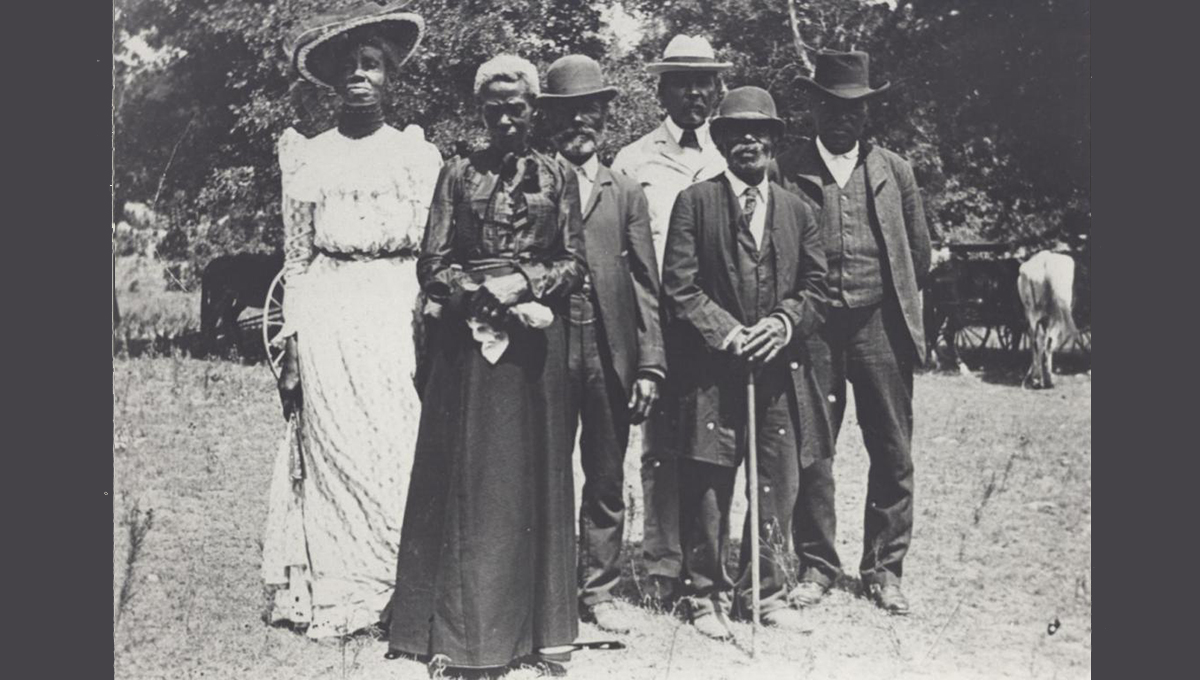Story courtesy of the National Museum of African American History & Culture
On “Freedom’s Eve,” or the eve of January 1, 1863, the first Watch Night services took place. On that night, enslaved and free African Americans gathered in churches and private homes all across the country awaiting news that the Emancipation Proclamation had taken effect. At the stroke of midnight, prayers were answered as all enslaved people in Confederate States were declared legally free. Union soldiers, many of whom were black, marched onto plantations and across cities in the south reading small copies of the Emancipation Proclamation spreading the news of freedom in Confederate States. Only through the Thirteenth Amendment did emancipation end slavery throughout the United States.
 But not everyone in Confederate territory would immediately be free. Even though the Emancipation Proclamation was made effective in 1863, it could not be implemented in places still under Confederate control. As a result, in the westernmost Confederate state of Texas, enslaved people would not be free until much later. Freedom finally came on June 19, 1865, when some 2,000 Union troops arrived in Galveston Bay, Texas. The army announced that the more than 250,000 enslaved black people in the state, were free by executive decree. This day came to be known as “Juneteenth,” by the newly freed people in Texas.
But not everyone in Confederate territory would immediately be free. Even though the Emancipation Proclamation was made effective in 1863, it could not be implemented in places still under Confederate control. As a result, in the westernmost Confederate state of Texas, enslaved people would not be free until much later. Freedom finally came on June 19, 1865, when some 2,000 Union troops arrived in Galveston Bay, Texas. The army announced that the more than 250,000 enslaved black people in the state, were free by executive decree. This day came to be known as “Juneteenth,” by the newly freed people in Texas.
The post-emancipation period known as Reconstruction (1865-1877) marked an era of great hope, uncertainty, and struggle for the nation as a whole. Formerly enslaved people immediately sought to reunify families, establish schools, run for political office, push radical legislation and even sue slaveholders for compensation. Given the 200+ years of enslavement, such changes were nothing short of amazing. Not even a generation out of slavery, African Americans were inspired and empowered to transform their lives and their country.
Juneteenth marks our country’s second Independence Day. Although it has long celebrated in the African American community, this monumental event remains largely unknown to most Americans.
The historical legacy of Juneteenth shows the value of never giving up hope in uncertain times. The National Museum of African American History and Culture is a community space where this spirit of hope lives on. A place where historical events like Juneteenth are shared and new stories with equal urgency are told.


14 Comments
Rhyan N Robinson
🙏🏾💪🏾✊🏾
D Y
✊🏾💯
Christopher Williams
It’s great that more and more media outlets that have a platform are sharing the details of Juneteenth. Unfortunate so many folks who are not African-American are unaware of this incredibly important and relevant event
Clyde Hilliard Jr
It is a blessed day but we still have a lot of work to do. We still have to deal with voter suppression and the whitewashing of history.
Kia Glenn
You are correct, Clyde. And with the advent of social media and cell phone technology, we are educating more of our people, our allies and our enemies to the truth!
stanley
I like the story regarding how Juneteenth is celebrated among Afro American’s. Now that its been declared a National Federal Holiday more people through out the United States and the world will understand what Juneteenth is all about.
stanley neal
I like the article regarding Juneteenth and why its celebrated among Afro Americans . Now that Juneteenth has been declared a Federal National Holiday, people in the United States and the World will understand its existence.
Thomas Dean
I will be celebrating Juneteenth, however own to honor our fallen heroes. When purchase merchandise I will make sure it is to help a Black own company not a Walmart.
abe l blassingame
And the fight continues .
Kia Glenn
Indeed it does!
JM
This is incredible. It’s amazing how much history is out there in the unknown, hidden from us. Thank you for sharing this knowledge.
Kia Glenn
You’re welcome!
Sheryl Malone
THANK YOU FOR SHARING THIS POWERFUL PIECE OF HISTORY THAT WAS NOT IN TAUGHT IN THE MAJORITY WHITE SCHOOL THAT I ATTENDED.
Kia Glenn
You’re quite welcome. We must know our past if we are to be effective in our future endeavors.
Comments are closed.